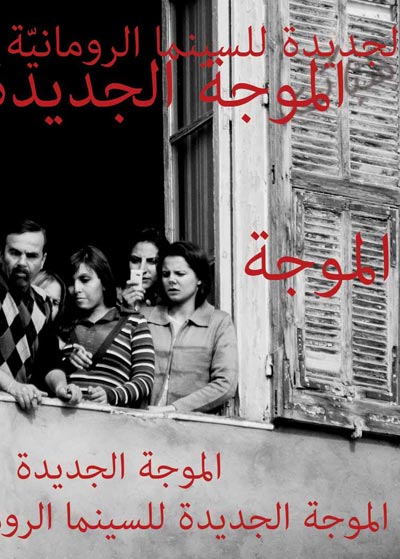Aspects of contemporary Romanian cinema
THE « NEW WAVE » OF ROMANIAN CINEMA
 It took the years 2000, a dozen of years after the fall of the Ceausescu regime,
to see Romanian cinema assert itself as one of the most dynamic, followed
by the critics and major international festivals. Until the early 90's, Romanian
cinema was incarnated by Lucien Pintillé, the theater and film director. The
nineties were a period in which Romanian cinema seemed get its grip within
the new political context.
It took the years 2000, a dozen of years after the fall of the Ceausescu regime,
to see Romanian cinema assert itself as one of the most dynamic, followed
by the critics and major international festivals. Until the early 90's, Romanian
cinema was incarnated by Lucien Pintillé, the theater and film director. The
nineties were a period in which Romanian cinema seemed get its grip within
the new political context.The beginning of the millennium was the birth of the new wave of Romanian cinema through two films: "Le Matos et la Thune "(2001) by Cristi Puiu and «Occident" by Cristi Mungiu (2001), well received at Cannes film festival. In addition to these two filmmakers devoted to their second works, "The Death of Mr. Lazarescu" by Puiu (Awarded at Un Certain Regard at Cannes in 2005), and "Four months three weeks two days" by Mungiu (Palme d'Or in Cannes 2007), we can add the merry prankster Corneliu Porombuiu, a caustic filmmaker whose "12:08 East of Bucharest" won the Camera d'Or award at Cannes, and "Police adjective" won the "Un Certain Regard" award in 2010.
This Romanian "new wave" is not limited to these three names, even if they are the most prominent; there is a need to add Radu Muntean, Calin Peter Netzer, Nae Caranfil and many others, almost all of which are in their forties and trained at the Institute of film and theater in Bucharest.
This new wave owes its success to the variety that characterizes it, despite the strong stylistic dissensions between the authors to which they relate.
Engaged in different ways in a realistic exploration of their time, purged of all aesthetics, the directors of the "new wave" of Romanian cinema were able to find specific ways to offer a view of their country. The hyper-realism of the very "Balzacian" Puiu, Mungiu's surgical cinema, Porumbuiu's caustic and comic intelligence, Netzer's psychology, and Nemescu's choral nature paints a multi-faceted portrait of Romania caught between the dependencies of the past and an alieanating present . Life under the communist dictatorship is a theme strongly present among the filmmakers of the "new wave". A traumatic past that continues to haunt this generation. That past is revisited in its most tragic but also more comical aspect. The present with its living difficulties, the market-grinding machine is x-rayed in some movies of this program with the same conclusion of an unclaimed humanity. Fortunately there's always a smile to defuse it all.
Ikbal ZALILA
139 - 12H08 A L’EST DE BUCAREST de Corneliu Porumboiu - ROMANIA ( 2006 )
140 - LA MORT DE DANTE LAZARESCU de Cristi Puiu - ROMANIA ( 2005 )
141 - AURORA de Cristi Puiu - ROMANIA ( 2010 )
142 - 4 MOIS, 3 SEMAINES ET 2 JOURS de Cristian Mungiu - ROMANIA ( 2007 )
143 - AU-DELA DES COLLINES de Cristian Mungiu - ROMANIA ( 2012 )
144 - BOOGIE de Radu Muntean - ROMANIA ( 2009 )
145 - MERE ET FILS de Calin Peter Netzer - ROMANIA ( 2012 )
146 - CONTES DE L'AGE D'OR de Hanno Höfer, Razvan Marculescu, Cristian Mungiu, Constantin Popescu, Ioana Uricaru - ROMANIA ( 2009 )
147 - MORGEN de Marian Crisan - ROMANIA ( 2010 )
148 - PICNIC de Adrian Sitaru - ROMANIA ( 2008 )

